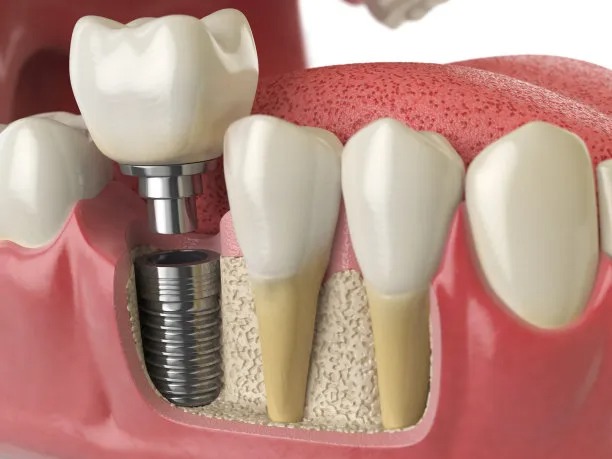Summary: Dental implant treatment has revolutionized the field of dentistry, providing an effective and lasting solution for tooth loss. This comprehensive guide will delve into four crucial aspects: the advanced techniques involved in dental implant procedures, their numerous benefits compared to traditional tooth replacement methods, the importance of post-operative care, and the latest innovations shaping the future of dental implants. Understanding these elements can help individuals make informed decisions regarding their dental health, enhancing their smiles and overall quality of life.
1. Advances in Dental Implant Techniques
The landscape of dental implant treatment has significantly evolved over the years, leading to more effective and less invasive procedures. One of the key advancements is the use of 3D imaging technology, which allows dental professionals to map out the jaw structure with precision. This imaging not only helps in identifying the ideal location for implant placement but also minimizes potential risks during the surgery.
Moreover, the introduction of guided implant surgery has transformed how procedures are conducted. This technique involves using surgical guides that are created based on the patients unique dental and anatomical features. The precision offered by this method enhances the likelihood of successful implants and reduces recovery time.
Additionally, the development of mini dental implants has provided a viable option for patients with limited bone density. These smaller implants serve as a perfect solution for those who may have previously been told they are not candidates for conventional implants, expanding access to dental care.
2. Benefits Over Traditional Tooth Replacement
Dental implants offer significant advantages over traditional tooth replacement methods, such as dentures and bridges. One of the most notable benefits is their durability; implants are designed to be a permanent solution, often lasting a lifetime with proper care. This makes them more cost-effective in the long run compared to other options that may require frequent replacements.
Another key benefit is the preservation of jawbone health. When a tooth is lost, the surrounding bone can start to deteriorate. Dental implants are surgically embedded into the jawbone, stimulating it and preventing the loss of bone mass. This contributes not only to the aesthetics of the smile but also maintains the structural integrity of the facial structure.
Additionally, implants improve overall oral health and functionality. They restore chewing efficiency and speech clarity, allowing individuals to eat and speak comfortably without the fear of their dentures slipping. This improvement in quality of life is a compelling reason for many to consider dental implant treatment.
3. Importance of Post-Operative Care
After receiving dental implants, proper post-operative care is essential to ensure a successful outcome. Patients are typically advised to follow specific guidelines, such as avoiding hard foods and adhering to a soft diet for the first few weeks to minimize discomfort and protect the implants. Regular follow-up appointments with the dentist are crucial for monitoring the healing process.
Oral hygiene also plays a significant role in the longevity of dental implants. Patients should be diligent in maintaining good oral hygiene practices, including brushing and flossing regularly to prevent infection and ensure the surrounding gum tissue remains healthy.
Furthermore, lifestyle adjustments, such as quitting smoking and reducing alcohol consumption, can greatly enhance the success rates of dental implants. Smoking is known to impede healing and can lead to complications, making it advisable for patients to consider quitting before and after the procedure.
4. Innovations Shaping Future Dental Care
The field of dental implants is continuously evolving, with innovative technologies paving the way for better patient outcomes. One exciting trend is the integration of biomaterials that promote faster osseointegration—the process where the implant fuses with the jawbone. These materials not only enhance the stability of the implant but also reduce healing time.
Robotic-assisted surgery is another groundbreaking development. This technology allows for greater accuracy during implant placement and reduces the risk of complications. Dentists are increasingly employing robotics in their practice to enhance precision and improve surgical outcomes.
Additionally, 3D printing technology is beginning to play a significant role in custom implant fabrication. This approach enables the creation of tailored dental implants that fit the unique contours of a patients mouth, further improving the success rate and comfort of the procedure.
Summary: The advances in dental implant treatment reflect a broader evolution in dental care, prioritizing patient outcomes and comfort. With benefits like improved durability and jawbone health, alongside essential post-operative care and emerging technologies, dental implants represent a leading choice in modern dentistry. Understanding these elements equips individuals to make informed decisions, ultimately enhancing their quality of life.
This article is compiled by Vickong Dental and the content is for reference only.
Vickong Dental
Vickong Dental is a large medical group established in Hong Kong in 2008 by professors from well-known medical universities in Guangdong and Hong Kong, as well as medical doctors from key national '985' universities (including Master's supervisors and senior professors). The chain of branches brings together expert dentists with PhDs and Master's degrees from Hong Kong and Mainland China, committed to providing high-quality dental treatment.
"Vickong Dental Practices the University Motto of 'Healing and Serving Society,' with a Stable Operation for Sixteen Years. It Has Been honored with Hong Kong Enterprise Leaders's Choice,' and is a Global Trusted Implant Center for the Nobel Implant System. Recommended by Hong Kong Metro Broadcast and Guangdong Television, it Serves Customers from Over Thirty Countries and Regions, Gaining the Trust and Favor of Citizens from the Guangdong-Hong Kong-Macau Greater Bay Area and Surrounding Cities.

Thousands of customers' unanimous praise
The most recognized and highly recommended dental service by customers in the Guangdong-Hong Kong-Macau Greater Bay Area
We Ensure You Receive Detailed Care and Attention Here
Hong Kong standards, Shenzhen prices, Your Trusted English-speaking dentists

Vickong Dental Medical-Grade Instrument Disinfection Process
Vickong Dental Medical-Grade Instrument Disinfection Process

Vickong Dental Chain: A Warm and Comfortable Environment for Treatment






Appointment Hours

Q&A
Why choose Vickong Dental?
Vickong Dental practices the university motto 「Medicine to Benefit Society」, with each branch bringing together highly qualified dentists with doctoral and master’s degrees from Hong Kong and the Mainland, and has maintained seventeen years of steady operation。Recipient of 「2024 Hong Kong Enterprise Leaders Brand」, 「2025 Hong Kong Enterprise Leaders Brand」, a Nobel Biocare Global Trusted Implant Center, and a brand recommended by Metro Radio Hong Kong and Guangdong TV。
To date, we have served customers from more than thirty countries and regions,earning exceptionally high word-of-mouth recognition and trusted recommendations from residents across the Guangdong-Hong Kong-Macao Greater Bay Area and surrounding cities
We have eight major branches in Zhuhai、Shenzhen,and a consultation and service assurance center in Hong Kong,so you can book a free consultation at any time for any questions,which is very reassuring.
If I do not accept the quotation after the CT scan, will I be charged??
No! As long as the actual treatment has not started, you will not be charged any fees.
Will there be any additional charges during the treatment process?
No, there won’t be any additional charges. Before treatment begins, we will clearly explain the treatment plan and its corresponding fees. Only after the patient agrees and signs the consent form will we proceed with the dental service.
Can I pay in Hong Kong dollars?
Yes. Vickong Dental accepts payment in Hong Kong dollars. The amount will be converted based on the exchange rate of the day, and the applicable rate will be clearly communicated to you in advance.
Can I reschedule my appointment at any time?
Yes. Please contact us via **WeChat** or **WhatsApp** as early as possible, providing your original appointment time and details, along with your preferred new date and time slot for rescheduling.













